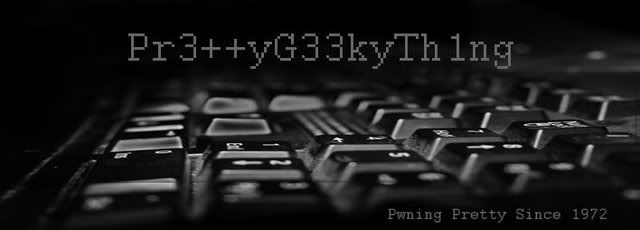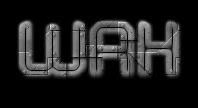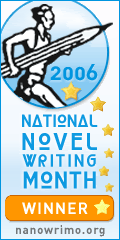 I've done the unthinkable, internetz.
I've done the unthinkable, internetz.Gwynyth is fascinated by our family history. She asks questions about it quite often and there is only so much I've been able to tell her.
One story I have never told here has managed to make the list of her "introduction go-to" stories when she meets new people.
She loves the story of John Pass who, together with John Stow, founded the Liberty Bell.
It is a fabulously patriotic story on the surface and so the surface is about as far as Gwynyth goes on that one.
The truth is a little more fun for me.
Once upon a time, in 1751, the Philadelphia Assembly ordered a bell for the State House from the Whitechapel Bell Foundry in London.
I assume it was an Amazon Deal of the Day kind of thing, and that the Whitechapel Bell Foundry has moved into making those doorbells you can program MP3s into, because this bell cracked as it was being hung up for the very first time. Since the returns policy at Whitechapel Bell Foundry included the possibility that the broken bell would be eaten by sea serpents and wind up at the bottom of the Atlantic due to witch activity, the Philadelphia Assembly asked Pass and Stow to fix it. And by "asked" I mean "paid", and that part is important.
Pass and Stow fixed the bell by melting it and then mixing copper into the metal at a rate which increased the strength of the bell quite a bit. Unfortunately, it also made the bell sound horrible.
To be fair, Pass and Stow were not bell-making guys. Why compete with the Whitechapel Bell Foundry monopoly at a time when people still couldn't get their horses shod through Ebay?
But they offered to try again at fixing the bell.
And by "offered" I mean "demanded money". And by "money" I mean as much as ten times the original quoted amount.
The Philadelphia Assembly paid it, Pass and Stow restored the original metal ratio and the bell didn't crack again until well after the warranty had expired.
This began, as I tell my daughter and management, our family's history of doing consulting work for the government. "If you aren't part of the solution, there is probably good money to be made in prolonging the problem" is actually on our family crest in Latin. Or at least the family crest I designed myself with crayons I borrowed from Gwynyth. And by "borrowed" I mean "rented", since she is her father's daughter.
Gwynyth is less interested in Nathaniel Holloway Pass, who was granted land in North Carolina by the King of England in the 1740's for helping put down an insurrection of the "savages" and later distinguished himself (alongside his son) fighting off our British overlords during the revolution kind of like Mel Gibson in "The Patriot" only he was probably less drunk (and since it was before World War II there was no Holocaust to deny yet).
Anyway, before all that the Pass family seems to have been all over Europe so tracing the history is hard even with Google.
What I did discover was that John Pass came to Philadelphia by way of Canada (since beavers don't need metal work done, I assume). Before that, he was in Ireland. And he studied metalwork from a master smith in Malta (and presumably the art of creative billing in Sicily).
The name Pass is an Americanization of either "Pasce" from the region in France or "Pace" from the Latin for "Peace".
Wait! I was going to explain about the rule I broke. Here it is:
I wanted to know more about Maltese history, since there is a connection there and either name origin could be placed there prior to the whole North Carolina/Canada/Ireland/England era.
So I picked up a book with neither dragons nor laser swords and a read it.
"The Religion" by Tim Willocks tells the story of the Siege of Malta in 1565. It is historical fiction, well outside my literary comfort zone.
The knights were holed up on a tiny island in the Mediterranean and attacked by thousands and thousands of Muslim troops for months. I find it not unbelievable that one of these knights (or a native of Malta) would choose the name "Peace" after that siege ended. There is still debate today about whether or not the knights had been "asking for it", I, for one, think the answer is "prolly".
The story was fascinating, but even as I read it knowing logically where my genetic heritage was likely to be, I found myself drawn to the Jewish characters in the story. There were several, since Jewish people participated on both sides of the conflict in every possible role from slave to Military Advisor.
Of course I would find this interesting personally, but I doubted there was any reason to suspect there to be a genetic connection there.
Until I found someone online who had been at this Pass family research far longer than me.
She put forth the theory in 2003 (which is about as recent as this theory gets) that the name Pass is an abbreviation used by Jewish settlers to disguise their heritage in England prior to 1657 (when Cromwell decided letting Jews back into England would be good for the economy). I doubt I could make that up.
So, the Pass family could have been in Malta as natives, pilgrims, slaves, or knights and they could have come there from any country in Europe, western Asia or north Africa or been there during the construction of the Ġgantija temples (the oldest stone structures on the planet) during the Neolithic age (c. 3600-2500 BCE).
It would have made things much easier for me (and Google) if ancient people had taken a break from dying of various plagues to just jot down some freaking records.
If they had, I'd be a lot farther into my research into what Darth Vader was doing between "Shadows of the Empire" and "Return of the Jedi".







2 comments:
The American in me only learned that you came from Canada, and you are a Jew. This is important as my great uncle is Jefferson Davis.
Through Canada! Through! While smuggling liquor to the fallen Puritans, most likely!
Post a Comment